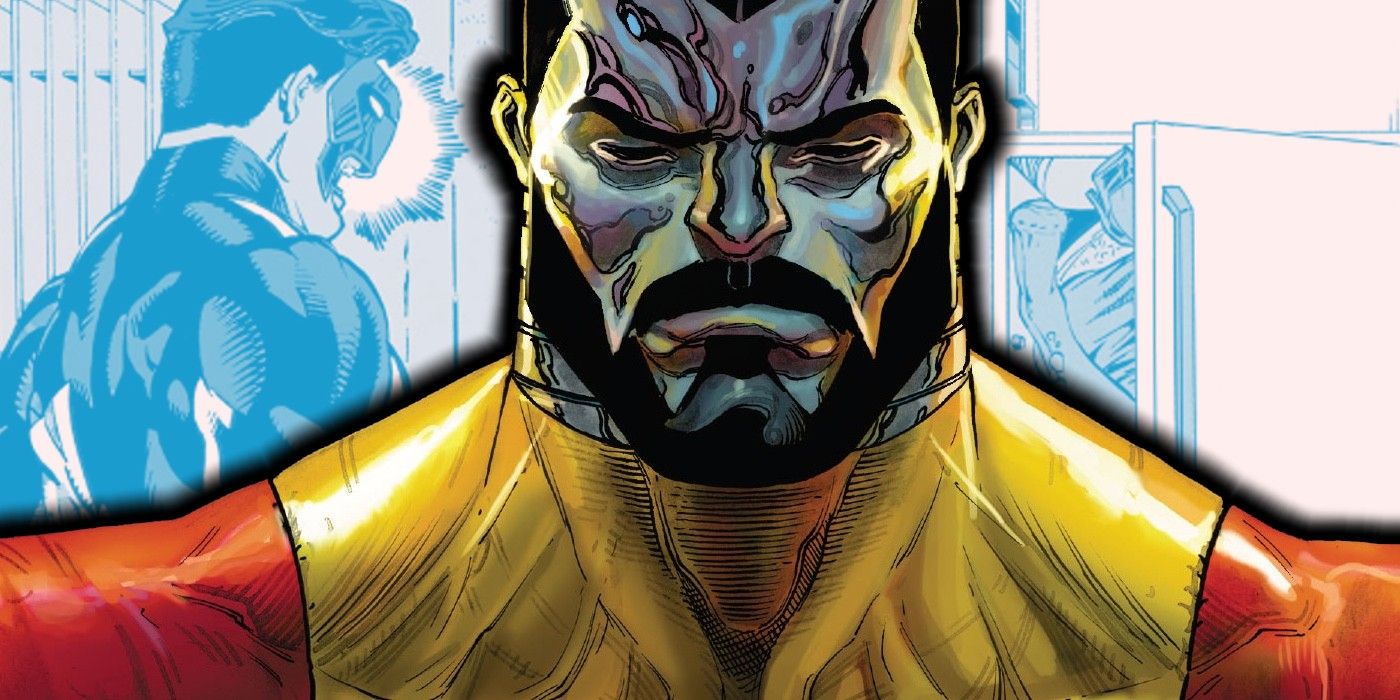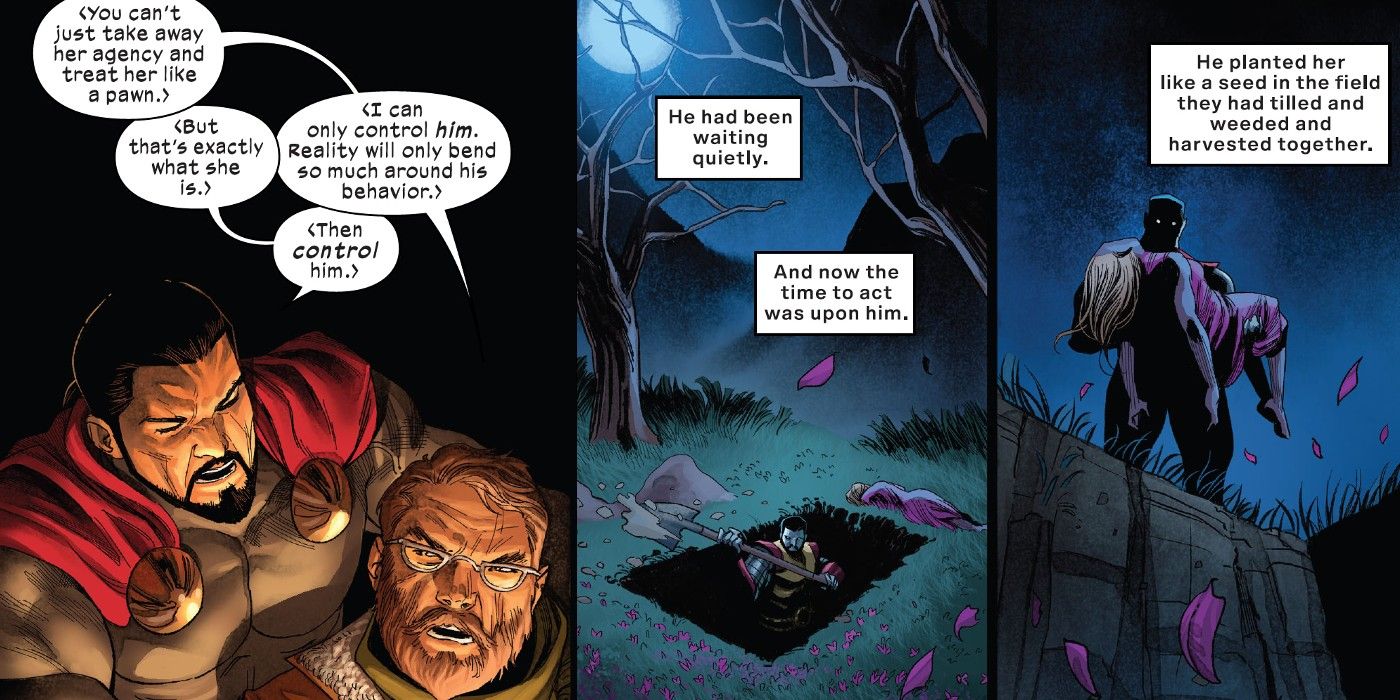
Warning: spoilers ahead for X-Force #24!
The "women in refrigerators" trope is one of the most famous criticisms of comic storytelling in modern memory, and the X-Men call it out in X-Force #24, showing readers in a brutal and straight-forward fashion why it is harmful, and why it needs to be avoided. The issue is on sale now in print and digital.
Coined by comic writer Gail Simone, the phrase "women in refrigerators" refers to the practice of harming or killing female characters (often in particularly grisly fashion) in order to motivate a male protagonist. The name originates from an infamous story running in 1994’s Green Lantern #52, where Kyle Rayner finds his girlfriend Alexa brutally murdered, hacked into pieces and stuffed into a refrigerator. Rayner discovers her body, the horror supposedly serving as a key moment in his development as a hero. Alexa only appeared a scant handful of times before her death, giving readers no time to connect with her, and portraying her as little more than a prop in Rayner's story. Simone and others kept a running tally of occurrences, pointing out how over-used this trope had become in comics. In the years since, greater attention has been paid to this concept, and writer Benjamin Percy, artist Martin Coccolo, colorist Guru-eFX and letterer Joe Caramagna seem to be calling it out in X-Force #24.
In this issue, readers learn that Colossus is being targeted by his brother Mikhail, who is using him in a scheme to topple the mutant nation of Krakoa. Mikhail enlists the aid of the Chronicler - a mutant with the ability to control people’s actions by writing about them - forcing him to write a story culminating in Colossus killing his lover Kayla. Mikhail demands the Chronicler speed the matter up, but the writer protests, saying that Kayla’s agency cannot be taken away and she is not a pawn. However, Mikhail prevails, and the Chronicler has Colossus kill Kayla’s when she discovers a series of paintings revealing Krakoa's secrets, ready to be shipped to the outside world.

The story is a direct confrontation with this trope, addressing it on a meta-level, as Mikhail demands the Chronicle subvert Kayla's agency to speed up events and meet his own goals. Presented as a weak man pressured by a superior, the Chronicler arranges the death, and Kayla takes her place next to Green Lantern’s Alexa and every other woman who had to die to advance the story of a male protagonist. The comic is clear about calling out this trope, and it's likely not finished doing so, as while the murder is horrifying, Krakoa has a policy of resurrecting fallen mutants, and Kayla should eventually have the chance to return and offer her own commentary and reactions to this development.
At the same time, X-Force #24 still utilizes the "women in refrigerators" trope to traumatize Colossus at the hands of his brother, even while calling this out. Superhero comics tell serialized stories, so anything could still happen, and the creative team acknowledging how wrong it is to treat Kayla as a pawn seems to be a signal that they'll truly subvert this trope before they're through. Since the "women in refrigerators" trope was called out almost 20 years ago, some progress has been made, but there is still work to be done, and the X-Men acknowledge this, hopefully with the intent of exploring this criticism further in upcoming X-Force comics.
from ScreenRant - Feed https://ift.tt/30qaH7S
via IFTTT
No comments:
Post a Comment